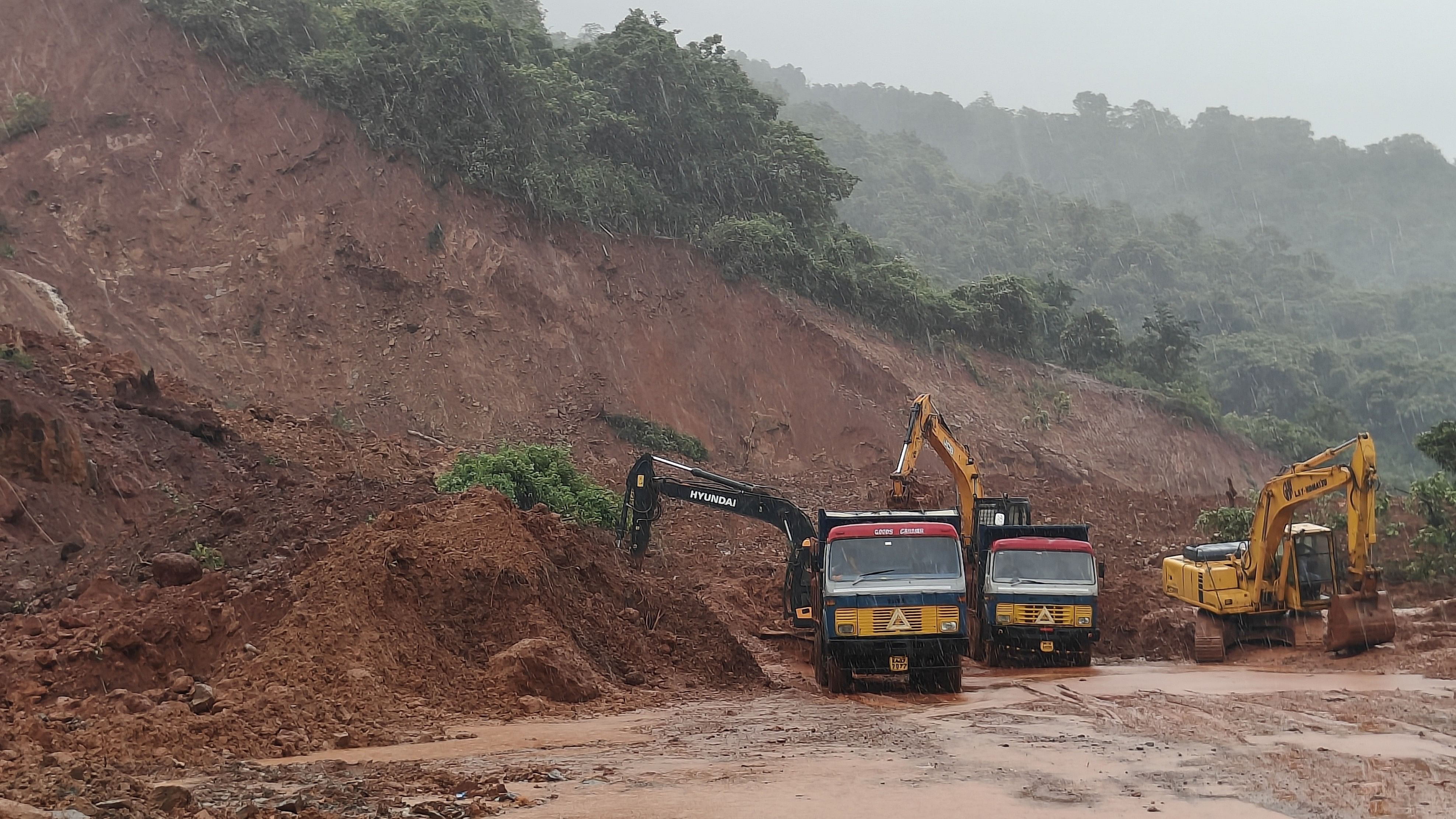
Unscientific construction of national highway-66, coupled with development works in ecologically sensitive Uttara Kannada district, seems to have increased the spots vulnerable to landslides in the district.
Credit: DH photo
Unscientific construction of national highway-66, coupled with development works in ecologically sensitive Uttara Kannada district, seems to have increased the spots vulnerable to landslides in the district.
According to a report by the Karnataka State Disaster Management Authority, Uttara Kannada district had 439 spots vulnerable to landslides in 2021. However, a senior official said that the number of such spots now was 609 in the district.
Conservation biologist Keshava H Korse says spots vulnerable to landslides have increased in the district due to unscientific development works such as rail and road projects, mining and quarrying activities, town expansion projects, and indiscriminate use of earth excavators that have changed the region’s landscape.
The large-scale felling of trees on hilly and ridge areas for agriculture and other purposes makes them prone to landslides, he said. “Areas that were deforested two-three decades ago are also reporting landslides now as the earth in these areas has lost its holding capacity,” he says.
“Almost all landslides reported in Uttara Kannada district are human-induced. In 2021, we had recorded over 400 spots vulnerable to landslides. Today, there are more than 700 such spots in the district,” he says.
He blames the unscientific design and execution of national highways (66, 776-E) as major reasons for the increase in vulnerable spots.
“For the stability of hills, the National Highways Authority of India should have allowed carving of hills by just 45 degrees. However, in several areas, the hills have been cut by over 90 degrees. They should have completed the slope pitching and construction of the protection wall scientifically within a few days. Many sections still do not have these walls. Vertical channels should have been made for easy flow of excess run-off rainwater. This also has not been done in many areas,” he says.
Devoured of its natural resources
Ananth Hegde Ashisara, former chairman of Karnataka Biodiversity Board, says ecologically sensitive Uttara Kannada district is being devoured of its natural resources for various development works.
“Agencies feel that development works can be executed in these areas just like they do in plain lands,” he says.
Korse suggests the government bring in a land use policy where projects are implemented only after conducting a complete scientific study.
At least three senior district-level officials who have worked in Karwar say their concerns regarding unscientific construction work of national highways were neglected by successive governments.
Revenue department (disaster management) principal secretary V Rashmi Mahesh says holistic action across all departments is required to prevent such incidents in future.
Disaster resilience
The department, as part of the World Bank project on disaster resilience in Karnataka, will focus on landslide-mitigation works, initiation of landslide alerts mechanism, climate-resilient infrastructure and community resilience.